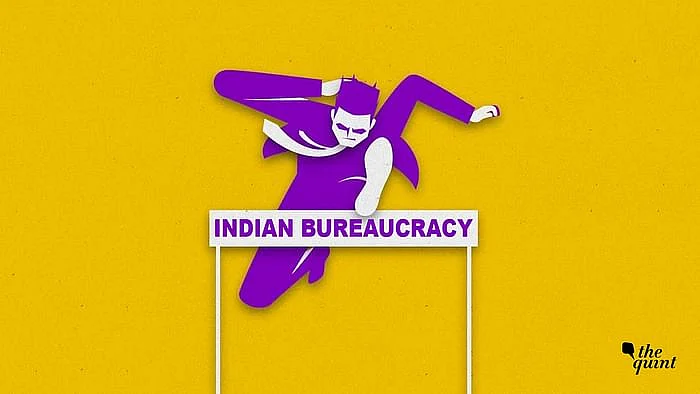“Once a government employee, always a government employee.”
In general, this statement holds true the world over. The hire-and-fire culture, a much-dreaded reality of a private-sector career, is alien in the dictionary of most governments. Usually, career progression and promotion is based on criteria other than merit. Barring a handful, few who enter the safety net offered by a government job where performance is never much of a consideration will ever dream of rocking this safe boat.
That’s why when one hears of a state government initiative where the regularisation of 9,500 contractual junior gram panchayat secretaries (JPS) is proposed to happen based entirely on their performance, one sits up and takes notice. This is certainly a first for me in my 25 years of watching the bureaucracy and government functioning closely. Regularisations of jobs based on performance sounds like an oxymoron to me.
How Telangana Strengthened Its Panchayat Governance
Let me elaborate. In 2014, the new state of Telangana was carved out of Andhra Pradesh and the administrators of the new entity began work to reverse the years of neglect that past governments had willy-nilly allowed to creep in. One of the first steps taken was to sharply increase the number of blocks and gram panchayats. The latter went up from 2,400-2,500 to around 13,000, with the intention of improving last-mile governance delivery units. Gram panchayats, with their quasi-sovereign powers in local governance, play a significant role in the delivery of welfare schemes and improving the lives of citizens, one of the core tenets of the formation of a new state.
To help ease the burden of the around 2,400 existing gram panchayat secretaries, 9,500 junior secretaries were hired by the government on a contractual basis to assist the panchayat secretaries who, prior to the increase, were handling four or five gram panchayats alone.
The candidates were chosen for a contractual three years based on a detailed examination, which also tested their knowledge of gram panchayat-level issues, procedures, laws and workings. The authorities also took a decision to regularise the appointments of the junior secretaries based only on performance.
While the idea was sound in principle, it wasn’t easy for the state to implement. Performance parameters as a concept are almost alien to governments, and most promotions are usually based on seniority, years of service put in, or by recommendation, often without paying any heed to performance. The authorities were acutely aware that any such criteria needed to be sharply defined, transparently measured, and, above all, judicially defensible for them to work. So, to do this, the state administration decided to rope in the recently constituted Center for Effective Governance in the Indian States (CEGIS) – the brainchild of economist Karthik Muralidharan and philanthropist Ashish Dhawan – which has been working with the Telangana state government on improving a variety of parameters, right from health and nutrition to infant mortality rates.
Can Other States Replicate the Experiment?
The CEGIS team in January 2020 started building up the key performance indicator (KPI) framework, defining what performance is, and soon developed a rigorous app-based system to manage data, measure performance and assign scores. Unlike a school or Anganwadi teacher who is departmentally attached and may be evaluated primarily on their ability to improve the students’ learning outcomes, a junior panchayat secretary’s job is multi-dimensional.
It typically cuts across various government schemes and touches many aspects of citizens’ daily lives – be it management of sanitation, street lights, green cover for the village, roads, coordination for NREGA, handling citizen complaints, managing gram sabha meetings and finances and making sure that decisions taken at sabhas are implemented.
The array of duties is astonishingly wide. The app introduced by CEGIS captures, measures and reports data across parameters. This includes self-reporting by frontline functionaries and a linked supervisory app for their managers. Based on the final score of junior secretaries, they are proposed to be regularised by the state’s Panchayati Raj and the Rural Development Ministry. The three-year contracts drawn up in 2019 have recently been extended up to the middle of 2023.
Readers can correct me if I’m mistaken, but the whole exercise struck me as quite revolutionary as I don’t know of too many precedents – almost no other Indian state so far has attempted to regularise contractual positions based on the candidate’s performance. Two, accountability would be the single most important factor in improving governance, to my mind. And three, if this experiment succeeds, there’s no reason why other states cannot replicate it. The Telangana government, for instance, has already made noises in this direction, indicating that it would consider regularisations based on performance parameters across departments if this works well.
Going Beyond Vested Interests
Let me end with a caveat. No matter how this ends, the state government, in my view, deserves a pat on the back for this experiment just for its out-of-the-box thinking, intent, structured approach and the courage to play with fire in some sense. To begin with, any change in government is often resisted per se, but even beyond that, vested interests that have ensured that government appointments and regularisations are based on anything but merit are sure to rear their heads soon and try to derail this.
This is an instrument that’s dear to almost every politician across the country, used to their advantage and to further their interests at practically every level and stage. As the state heads towards elections at the end of 2023, politicians’ appetite for such an adventure might wane. But the very fact that it surfaced at all needs to be acknowledged and lauded.
(Anjuli Bhargava is a senior writer and columnist based in Goa.)
(At The Quint, we question everything. Play an active role in shaping our journalism by becoming a member today.)
